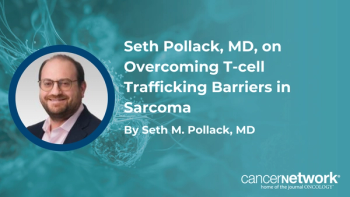
Oncology NEWS International
- Oncology NEWS International Vol 18 No 10
- Volume 18
- Issue 10
Obesity hinders treatment in pediatric leukemia
Obesity may contribute to chemotherapy resistance and increasing relapse rates among children with leukemia, an animal study in Cancer Research (online, September 22, 2009) suggests.
Obesity may contribute to chemotherapy resistance and increasing relapse rates among children with leukemia, an animal study in Cancer Research (online, September 22, 2009) suggests.
Steven D. Mittelman, MD, PhD, and colleagues developed a mouse model of obesity and leukemia for which they cultured fat and leukemia cells together, and treated the leukemia cells with traditional chemotherapy drugs used in children: vincristine, nilotinib (Tasigna), daunorubicin, and dexamethasone.
According to the results, obese mice with leukemia had higher relapse rates than lean mice after treatment with the first-line chemotherapeutic agent vincristine. The chemotherapy treatments all worked less effectively in culture when fat cells were nearby. When the mice relapsed from the leukemia, the researchers found leukemia "hiding out" in the fat tissue during chemotherapy, said Dr. Mittelman's group, based at Children's Hospital Los Angeles and the Keck School of Medicine at the University of Southern California.
Articles in this issue
over 16 years ago
Cancer, not HPV vaccination, hastened death of UK girlover 16 years ago
Posaconazole reduces infection in AML patientsover 16 years ago
Global report warns of escalating cancer rateover 16 years ago
New class of alpha emitters takes aim at bone metastasesover 16 years ago
Who's Newsover 16 years ago
Stop and smell the volatile organic compounds in lung caover 16 years ago
Proton therapy report advises cautionNewsletter
Stay up to date on recent advances in the multidisciplinary approach to cancer.





































